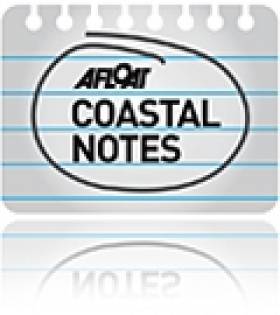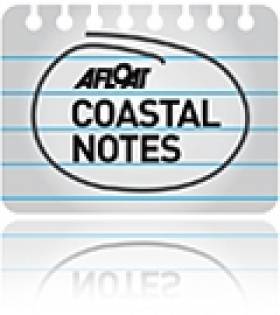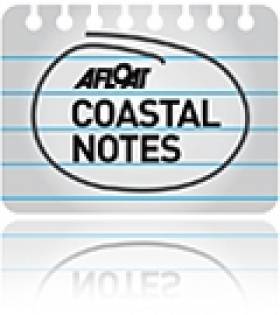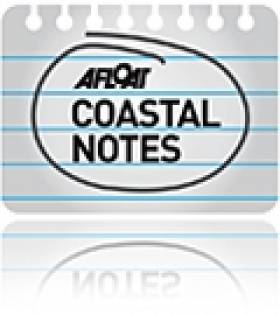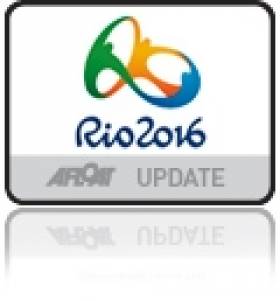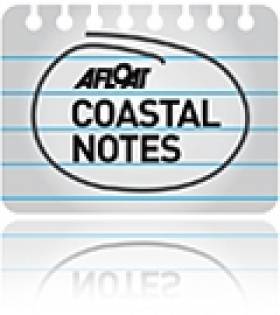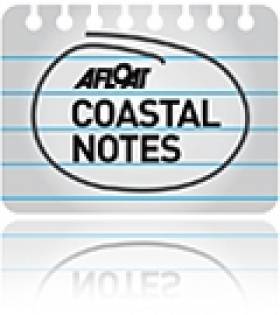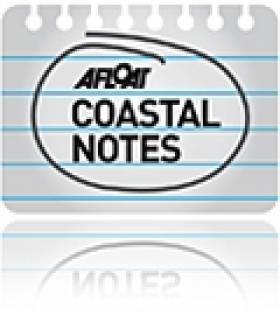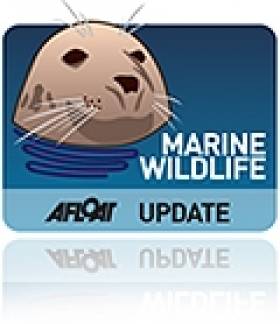Displaying items by tag: Providence Resources
Providence Resources Granted New Option Over Spanish Point South
#Oil - The Irish Times reports that the State has offered Irish oil and gas firm Providence Resources a new licensing option off Spanish Point in Co Clare.
The award will allow Providence and its prospecting partners to turn the option for Spanish Point South, which lies in the northern Porcupine Basin some 160km off the Clare coast, into a frontier exploration licence.
Providence - which earlier this week dismissed setbacks over its Barryroe prospect in the Celtic Sea that saw its shares fall in early trading - says its planned 3D seismic survey will be the third such survey in the area, and together with its Spanish Point well "should put us in the leading position" in the hydrocarbon-rich zone.
As previously reported on Afloat.ie, the Porcupine Basin region has long been identified as a bountiful source of oil, with the potential to produce as much as one billion barrels.
Providence Dismisses Setback Claims Over Barryroe Prospect
#Oil - News that the Barryroe prospect off the south coast requires a new appraisal well at a cost of some €30 million sent shares in Providence Resources tumbling on the Dublin market as trading opened today.
But the Irish oil and gas firm says there has been no setback to its plans for the oil field and "no material change" to its status, as The Irish Times reports.
And the company says it remains in discussions with "major Asian, European and North American oil companies" to tap Barryroe as a collaborative venture that's expected to be worth billions to the Irish economy.
Shares fell 9% this morning following a Sunday Times article that suggested Providence would seek funds from shareholders for new drilling in the Celtic Sea prospect.
Providence Aim to Kickstart Dalkey Island ‘Prospect’ Drilling Plans
#DalkeyOilProspect - Ireland's biggest oil exploration company, Providence Resources is preparing to start work on its Dalkey Island oil drilling once a regulatory 'Snafu' is resolved.
According to Independent.ie (which has more on this story) the Department of the Environment is preparing to amend legislation that will enable Providence Resources to reactivate its foreshore licence, which clears the way for drilling.
Providence handed back its foreshore licence following a legal snarl up over the wording of the permit.
The department had been expected to fix the regulatory issue in May but the timetable has slid.
Latest indications suggest that the new wording will be in place before the end of this year. In its exploration timetable given to investors, Providence has said that it is scheduled to start drilling in the first half of 2015.
Shares Tumble As Providence Plugs Dunquin Oil Well
#Oil - Providence Resources have plugged and abandoned an exploration well at the Dunquin North prospect off the Cork coast after striking more water than oil, as OilVoice reports.
The company's technical director John O'Sullivan confirmed the presence of "a potential residual oil column" which may indicate that any oil that was once in the reservoir has since leaked - though such weaknesses have been discovered elsewhere over the prospect.
"Notably, the separate Dunquin South build-up appears to have a thicker sea and lacks the significant fluid escape features seen further to the north," he said.
Providence chief executive Tony O'Reilly added that data from the southern explorations are encouraging "for the basin in general and are likely to intensify the already growing industry focus on this emerging hydrocarbon exploration arena."
According to The Irish Times, Providence shares fell the most in over a year of Dublin trading at news of the Dunquin North disappointment.
Olympic Sailing Team Sign Rio 2016 Sponsor
#rio – In a continuation of its relationship with Irish high performance sailing, the Irish Olympic sailing team announced a new deal for the Rio de Janeiro Olympic Regatta in 2016 with Irish exploration firm Providence Resources in Dublin this morning.
A team spokesperson described the size of the sponsorship as a 'significant six figure sum'.
Golden girl Annalise Murphy (23) and other members of the team were present when the city centre announcement was made with Providence Resources Chief Executive, Tony O'Reilly.
Annalise, who lost out on a medal in the final moments of her last race in Weymouth, has got her 2016 campaign off to a flying start winning two of three Eurocup events, earning her May's Afloat Sailor of the Month award.
Murphy won both the Italian Lake Garda and Dutch rounds of the Eurocup to put her in top form for the Laser European Championships to be staged, for the first time, in her home waters of Dun Laoghaire next month at the National Yacht Club.
Annalise was joined for today's press event by June's Sail for Gold medal winner 49er sailor Matt McGovern, Laser solo sailor James Espey and Paralympian John Twomey.
The Irish sailing team had their most successful Olympics for thirty years in 2012 with 4th, 10th and 14th finishes but did not win a medal as team officials had predicted.
The sponsorship from Providence announced today means the team can spend more time at the Rio venue, a much more expensive proposition than Weymouth.
Currently, the 2016 sailing team members includes:
Olympic
Annalise Murphy, (Laser Radial)
Ryan Seaton & Matt McGovern, (49er)
James Espey (Laser)
Paralympic
John Twomey (Sonar)
Ian Costello (Sonar)
A number of other campaigns are currently in training to reach qualification standard for 2016, including two campaigns in the new all-female class 49er FX, namely Tiffany Brien and Saskia Tidey and Claudine Murphy and Andrea Brewster.
Meanwhile, Royal Cork Star sailor Peter O'Leary could still get a chance to sail in the keelboat again but only if the venerable class is reinstated in the Olympic fleet line-up, a question everyone in Olympic circles is asking.
Sailing at the Rio Games will be at Marina da Gloria in Guanabara Bay, where, ominously, forecasters say winds can be 'noxiously light and flukey'.
Brussels Wants Answers From State Over Seismic Surveys
#SeismicSurvey - The Irish Times reports that the European Commission has demanded an explanation from the State regarding the absence of environmental impact assessments for seismic surveys off the west coast.
The action comes following a complaint lodged in Brussels by the Irish Whale and Dolphin Group (IWDG) in the wake of the recommencing of seismic surveys over the Corrib gas field last month.
As Irish waters are a designated whale and dolphin sanctuary, the IWDG's position is that the State must comply with the EU directive to conduct an environmental impact assessment when licensing such ocean-bound surveys.
The group says it received word from the EC that the issue has been raised with the Department of Energy, and reiterated the need for "strict protection" of cetaceans in Irish and all EU waters.
Last December the IWDG expressed concerns over the potential impact of a 2D seismic survey on harbour porpoises in the Kish Bank Basin in Dublin Bay.
As previously reported on Afloat.ie, Providence Resources subsequently suspended its licence to explore for oil and gas at what was termed the Dalkey Island Prospect.
The Irish Times has more on the story HERE.
Dalkey Island Oil Licence Surrendered
#DalkeyOilProspect – Providence Resources, who have been planning to explore for oil and gas in Dublin Bay, has surrendered its foreshore licence to the Department of the Environment, reports The Irish Times.
The Dublin based exploration company had planned to drill off the coast of Dalkey, in the Kish Basin.
In a statement this afternoon, the company said it made the decision to surrender the licence when it became clear that elements of an EU directive on environmental impact assessment (EIA) "were not transposed correctly in 1999 by the Irish Government". For more on this story click HERE.
Dublin Bay Oilwatch Q&A Information Workshop
#DalkeyIslandPROSPECT – An Oilwatch Q&A Information Workshop, about the issues of drilling for oil and gas in Dublin Bay will be held this Sunday (3 February) between 1-5pm in the Kingston Hotel, Dun Laoghaire.
A panel of speakers will present the following topics; oil industry, financial reward, legal matters and the environment. The event is organised by Save Our Seafront and with the support of other groups. All are welcome to the event, for further details click HERE.
As previously reported on Afloat.ie, the issue of a Foreshore Licence granted to Providence Resources for the Dalkey Island 'Prospect' is the subject of a judicial review that An Taisce will be bringing to the High Court on 19 February.
Dalkey Prospect Foreshore Licence Disputed
#DALKEY OIL LICENCE – An Taisce has alleged the Government acted unlawfully in how it granted Providence Resources a foreshore licence at the Dalkey Island prospect in Dublin Bay, reports The Irish Times.
In High Court proceedings, An Taisce claims the Government wrongly concluded an environmental impact assessment (EIA) was not required to be carried out prior to awarding the licence to Irish-listed oil and gas exploration company.
An Taisce claims that under the relevant EU directive an EIA is required and the decision of September 27th last granting the licence should be quashed. It is also seeking a declaration the Government has failed to properly transpose or implement environmental impact assessment Directive 2011 92 EU into Irish law.
The licence is for an area in the Kish Bank basin and allows Providence carry out a number of activities, including a seismic study, well site survey and the drilling of an exploration well. The edge of the licence area is about 10km from Dalkey Island.
Mr Justice Michael Peart yesterday granted the ex parte application (one side only represented) for leave to bring the judicial review proceedings and returned the matter to February.
As reported earlier this month on Afloat.ie, the Minister for Heritage Jimmy Deenihan announced proposals for six Special Areas of Conservation (SACs) sites to include an area designated between Rockabill to Dalkey Island.
Six New Marine Sites Chosen for Conservation
#MarineWildlife - Minister for Arts, Heritage and the Gaeltacht Jimmy Deenihan announced on Wednesday the proposal of six new marine sites for designation as Special Areas of Conservation (SACs) to protect marine habitats and species listed on the 1992 EU Habitats Directive.
The six sites around the Irish coast represent habitats (sandbanks and reefs) and/or marine wildlife (specifically dolphins and porpoises) identified as insufficiently represented in the list of Irish SACs at the EU Commission's Marine Atlantic Biogeographic Seminar in 2009. These sites are:
- Blackwater Bank, Co Wexford (Sandbank)
- West Connacht Coast (Bottlenose dolphin)
- Hempton’s Turbot Bank, Co Donegal (Sandbank)
- Rockabill to Dalkey Island, Co Dublin (Reefs and harbour porpoise)
- Porcupine Bank Canyon, off Kerry (Reefs)
- South-East Rockall Bank (Reefs)
The designation of marine SACs is scheduled for completion in Europe in 2012, and according to the minister, this list of six additional SACs will constitute Ireland’s contribution to that process.
In a statement, the department said: "These six SAC sites will protect a range of habitats and species including sandbanks, deep sea coral reefs, dolphins off the Atlantic coast and harbour porpoises found in Dublin Bay.
"These sites are part of a European network of nature conservation sites known as Natura 2000 which was established with the aim of preserving our rich natural heritage for future generations."
Among the new designations are two offshore sites at the Porcupine Bank Canyon and the South East Rockall Bank "contain excellent examples of offshore fauna associated with geogenic reef (ie reef made of rock). Considering the extent of Ireland’s offshore maritime area alongside the value and vulnerability of deep sea biodiversity therein, these two sites represent a modest but highly significant contribution to the Irish SAC network."
Two new inshore areas are being proposed in the west of Ireland to protect the bottlenose dolphin. The department is currently co-funding a multi-annual research programme to further understand the ecology of this species in this coastal region.
Meanwhile, the inshore site off Dublin from Rockabill to Dalkey Island is also being proposed both for the harbour porpoise, and for geogenic reef to address a gap in the SAC network for this habitat type in the northern part of the Irish Sea.
As previously reported on Afloat.ie, the oil exploration company behind the Dalkey Island Prospect has spoken out over the Rockabill to Dalkey Island designation, claiming it had not been given advance information of the decision.
Providence Resources says maps provided by the department appear to show and overlap between the location for a seismic survey and the new SAC area, which would make any development for resource extraction "extremely problematic".
Last week the Irish Whale and Dolphin Group (IWDG) expressed concern over the potential impact of the 2D seismic survey at Dalkey Island on harbour porpoises in Dublin Bay.


























